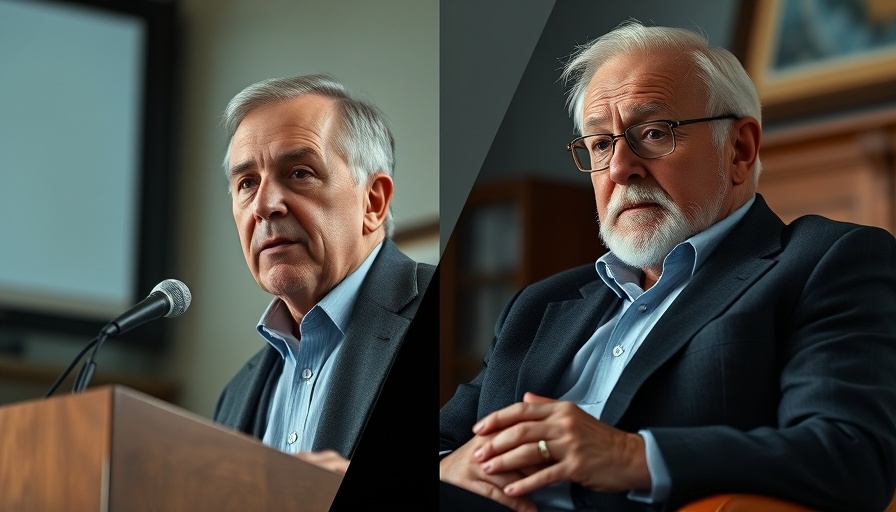
Trump's Bold Accusations Against Biden on Russia-Ukraine Conflict
In a recent statement, former President Donald Trump has placed the blame for the ongoing conflict between Russia and Ukraine squarely on President Joe Biden’s shoulders. Trump asserts that Biden's support for Ukraine's NATO membership aspirations provoked Russia into initiating the war—a claim that he has reiterated during recent appearances. Trump remarked, “As soon as he said that, I thought, you know what? You’re going to have a war now,” highlighting his belief that a different approach could have prevented the escalation.
The NATO Dilemma: A Deep-Rooted Concern for Russia
The tension surrounding Ukraine's NATO membership is not a new development; it has been a longstanding issue in U.S.-Russia relations. Trump argues that Biden, by endorsing Ukraine's aspirations to join NATO, set off a chain reaction that culminated in the conflict. This perspective aligns with concerns expressed by Moscow, which has always viewed NATO encroachment as a direct threat to its national security.
Historical Context: Understanding NATO's Impact on Global Politics
Historically, NATO's eastward expansion has been a contentious topic, often cited by Russian officials as a justification for aggressive postures towards neighboring countries. Trump's assertion reflects a belief that Biden’s comments altered the geopolitical balance, leading Russia to perceive a necessity to act decisively to protect its borders.
Counterpoints: Diverse Perspectives on the Ukraine Conflict
While Trump's critique of Biden's approach is vocal, it is also essential to acknowledge conflicting viewpoints, especially from Ukrainian and European leaders. Ukrainian President Volodymyr Zelensky has consistently insisted on including Ukraine in peace discussions and rejects any negotiations that sideline his country. This raises questions about the feasibility of Trump’s assertions that negotiations could lead to a swift end to the war.
The Path Forward: Trump’s Vision for Peace
Despite the controversial claims, Trump expresses a desire for peace negotiations, asserting that both Ukraine and Russia are amenable to ceasefire discussions. His enthusiasm for dialogue suggests a notable shift in approach, which, if translated into effective diplomacy, could potentially reshape the fate of war-torn Ukraine.
Ultimately, as the international community navigates the complex landscape of the Russia-Ukraine conflict, understanding the implications of leadership statements and actions remains critical, not just for policymakers but for analysts and legal experts. With geopolitical tensions on the rise, the decisions made by current and former leaders could have profound ramifications for global security.
 Add Row
Add Row  Add Element
Add Element 



 Add Row
Add Row  Add
Add 
Write A Comment